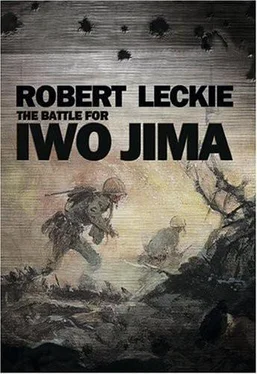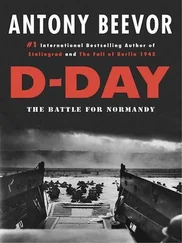Seabees land to build roads to battle zone.
Feb. 22, 1945
The 3 Division’s 21 Regiment is committed to battle in the 4 Division’s zone.
Japanese kamikazes attack support ships lying off Iwo Jima.
Feb. 23, 1945
The 28 Marines raise the American flag atop Mt. Suribachi.
Feb. 25, 1945
The last units of the 3 division are committed to the battle.
The 4 Division enters the “Meatgrinder.”
Feb. 27, 1945
The 3 Division overruns Airfield Number Two and Hill 199.
March 1, 1945
The 5 Division overruns Hill 362A.
The 3 Division clears Airfield Number Three
March 3, 1945
Marines of the 5 Division capture Hill 362B.
March 4, 1945
The Meatgrinder is finally shattered by 4 Division.
The first B-29 lands on Iwo Jima.
March 6, 1945
Air Force P-51 Mustangs and P-61 Black Widows arrive on Iwo.
March 7, 1945
The 3 Division makes a pre-down attack against Hill 362C, which is captured later that day.
March 8, 1945
Japanese launch banzai attack at night and are repulsed with heavy losses.
March 9, 1945
Marines of the 3 Division reach the other end of Iwo Jima.
March 16, 1945
Last strong enemy opposition is eliminated in 3 Division’s zone with fall of Cushman’s Pocket.
General Kuribayashi informs Toko of the impending loss of Iwo Jima.
March 19, 1945
The 4 Division takes ship for Hawaii.
March 26, 1945
Surviving Japanese launch a desperate early-morning attack against Marine and Army Air Force units near Airfield Number Two.
The Battle for Iwo Jima is officially declared over.
Squad = 10 men
Platoon = 40 men
Company = 200 men
Battalion = 1,000 men
Regiment = 3,000 men
Division = 20,000 men
Corps = 50,000 or more men
In the Marine Corps, four squads make up one platoon; four platoons and a headquarters section make up a company; three companies and a headquarters company make up a battalion; three battalions make up a regiment; and three regiments plus an artillery regiment make up a division.
A Marine division’s strength is usually about 20,000 men because, in addition to the “line” (infantry) and artillery regiments, there are many special units attached to the division. These special units include battalions of tanks, engineers, motor transport, and amtracks. In addition there are medical-aid, war-dog, rocket, communication, and intelligence units. Two or more of these big 20,000-man divisions form a corps of upwards of 50,000 men, because a corps also has its specialists of service and supply.
At Iwo Jima the Fifth Amphibious Corps included three Marine divisions, the 3, 4, and 5. In all, this was a force of about 70,000 men.
These figures serve only as approximations, because military units always vary in size. A number of men are always sick, on leave, on loan to other units or going home after being discharged. In one campaign a division may need its tanks; in another, impassable terrain will make it necessary to leave the tanks behind. Thus an army, like the wars it fights, is an inconstant, changing thing.
Marines who Won the Medal of Honor on Iwo Jima
(* indicates that the award was given after death)
| Name |
Rank |
Date |
Reason for Award |
| *Berry, Charles Joseph |
Corporal |
March 3, 1945 |
Smothered grenade with his body to save his comrades |
| *Caddy, William Robert |
Private First Class |
March 3, 1945 |
Smothered grenade with his body to save his comrades. |
| *Cole, Darrell Samuel |
Sergeant |
Feb. 19, 1945 |
Fought his way to Airfield One and destroyed several pillboxes before he was killed |
| Dunlap, Robert Hugo |
Captain |
Feb. 20-21, 1945 |
Spent two nights in front of Marine lines, directing fire on enemy caves. |
| Chambers, Justice Marion |
Lieutenant Colonel |
Feb. 19-22, 1945 |
Exposing himself to enemy fire he inspired his men in assault on Quarry until he fell critically wounded. |
| Gray, Ross Franklin |
Sergeant |
Feb. 21, 1945 |
Wiped out six enemy positions and killed more than 25 enemy soldiers. |
| Harrell, William George |
Sergeant |
March 3, 1945 |
In dawn battle he saved his post, killing a dozen enemy soldiers, but lost both hands. |
| Jacobson, Douglas Thomas |
Private First Class |
Feb. 26, 1945 |
Destroyed 16 pillboxes and killed 75 Japanese in assault on Hill 382. |
| *Julian, Joseph Rodolph |
Sergeant |
March 9, 1945 |
In a one-man assault he smashed enemy positions with grenades, a rifle, demolition charges and a bazooka. |
| *LaBelle, James Dennis |
Private First Class |
March 8, 1945 |
Smothered grenade with his body to save his comrades. |
| Leims, John Harold |
Second Lieutenant |
March 7, 1945 |
Made two trips into enemy area to save wounded men from certain death. |
| Lucas, Jacklyn Harrell |
Private First Class |
Feb. 20, 1945 |
Fell on one grenade, pulled a second under him to save comrades. |
| *Lummus, Jack |
First Lieutenant |
March 8, 1945 |
Destroyed three pillboxes single-handedly. Despite serious wounds he led his men until blown up by land mine. |
| *Martin, Harry Linn |
First Lieutenant |
March 26, 1945 |
Rallied his men and fought off final enemy charge. |
| McCarthy, Joseph Jeremiah |
Captain |
Feb. 21, 1945 |
Knocked out two pillboxes and inspired capture of ridge in front of Airfield Number Two. |
| *Phillips, George |
Private |
March 14, 1945 |
Smothered grenade with his body to save his comrades. |
| Pierce, Francis Jr. |
Corpsman |
March 15-16, 1945 |
Fought off enemy, treated injured even though wounded. |
| *Ruhl, Donald Jack |
Private First Class |
Feb. 19-21, 1945 |
After three days of heroic fighting, smothered a demolition charge to save his companion. |
| Sigler, Franklin Earl |
Private |
March 14, 1945 |
Despite wounds he led a fierce assault which destroyed a number of enemy positions; then he directed artillery fire and rescued wounded comrades. |
| *Stein, Tony |
Corporal |
Feb. 19, 1945 |
Killed 20 enemy in slashing d-day assault. |
| Wahlen, George Edward |
Corpsman |
Feb. 26, 1945 |
Wounded three times in saving injured Marines. |
| *Walsh, William Gary |
Sergeant |
Feb. 27, 1945 |
Led two daring assaults and then smothered a grenade with his body to save comrades. |
| Watson, Wilson Douglas |
Private |
Feb. 26-27, 1945 |
Destroyed a pillbox and then scaled a ridge and killed 60 Japanese while exposed to enemy fire. |
| Williams, Hershel Woodrow |
Corporal |
Feb. 23, 1945 |
In a four-hour assault smashed several enemy strongpoints with a flame thrower. |
| *Williams, Jack |
Corpsman |
March 3, 1945 |
Shot four times, died still treating Marines. |
| *Willis, John Harlan |
Corpsman |
Feb. 28, 1945 |
Died treating Marine and fighting a grenade battle. |
Читать дальше











